At the beginning of the year we studied sculptures and went on the Beauty of Bronze field trip. We learned about texture, balance, positive and negative space, movement and mood. We learned how to critique sculptures by describe our subject, analyzing the elements and principles of art, interpreting the message and making a judgement of the work we critiqued.
We also studied and used the following elements of art to create our art projects.
line—an element of art: the flat path of a dot through space used by artists to control the viewer’s eye movement; a thin mark made by a pencil, pen, or brush
line quality—the width or appearance of any line, such as thick or thin, smooth or rough, continuous or broken
line types—the variety of directions and shapes that a line may have; vertical, horizontal, diagonal, curved, zigzag
line types—there are five (5) types of lines: vertical, horizontal, diagonal, curved, zigzag
shape—an element of visual arts; a closed space made when a line connects to itself
geometric shapes—a defined form; circle, square, triangle
geometric—any shapes that are based on math principles, such as a square, circle, and triangle hatching, cross hatching, scribbling, broken lines, repeating lines and shapes
texture—an element of visual arts; how something feels or appears to feel; stippling, hatching, cross hatching, scribbling, broken lines, repeating lines and shapes
drawing-techniques—different ways of drawing, such as hatching, stippling, contour, blending, or shading
hatching—drawing thin parallel or crossed lines
contour—drawing the outline of a shape
blending—
shading—drawing different grades of a color
sketch—a drawing without much detail, usually completed in a short amount of time; sometimes used as a rough draft for later work
value/shading—an element of visual arts; the lightness and darkness of a line, shape, or form
realism—a style of art that portrays objects or scenes as they might appear in everyday life. A recognizable subject is portrayed using lifelike colors, textures, and proportion.
Wednesday, October 21, 2009
Subscribe to:
Post Comments (Atom)
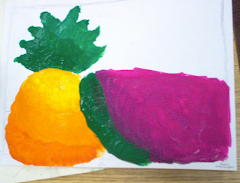
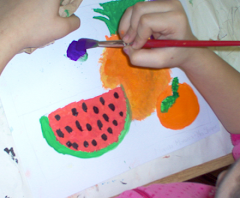
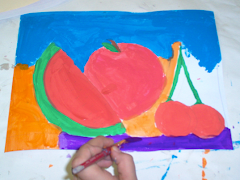
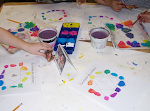

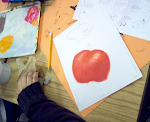







No comments:
Post a Comment